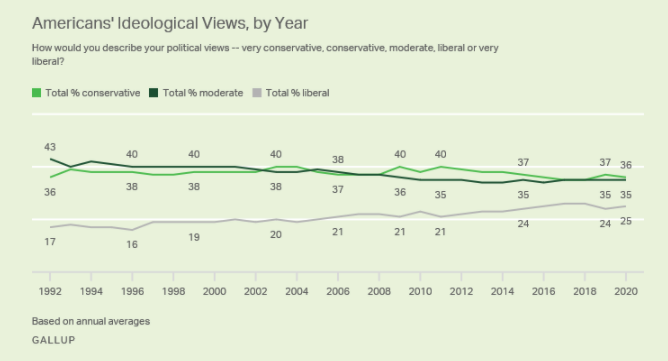
The filibuster is a relatively recent and arbitrary norm. I don't feel strongly about it.
But I find it strange that the same people who are convinced the Senate is structurally biased against them are also convinced abolishing the filibuster will help them realize their goals.
But I find it strange that the same people who are convinced the Senate is structurally biased against them are also convinced abolishing the filibuster will help them realize their goals.
I get how abolishing the filibuster helps Democrats over the next two years.But will they really derive a partisan advantage from it over a twenty or forty year period?
That question seems to me to be incredibly hard to answer - and everyone is pretending that it's obvious.
That question seems to me to be incredibly hard to answer - and everyone is pretending that it's obvious.
Most answers assume the main battlegrounds will be economic and about adding legislation.
It is not at all obvious that either of these assumptions will hold true in the coming decades. Republicans could repeal existing entitlements and pass new laws on e.g. affirmative action.
It is not at all obvious that either of these assumptions will hold true in the coming decades. Republicans could repeal existing entitlements and pass new laws on e.g. affirmative action.
Part of my skepticism stems from smart politicians very often getting the partisan impact of structural reforms wrong.
In 2005, Silvio Berlusconi changed Italy's electoral system in two ways to help himself win.
In 2006 elections, both changes directly helped the opposition.
In 2005, Silvio Berlusconi changed Italy's electoral system in two ways to help himself win.
In 2006 elections, both changes directly helped the opposition.
• • •
Missing some Tweet in this thread? You can try to
force a refresh




